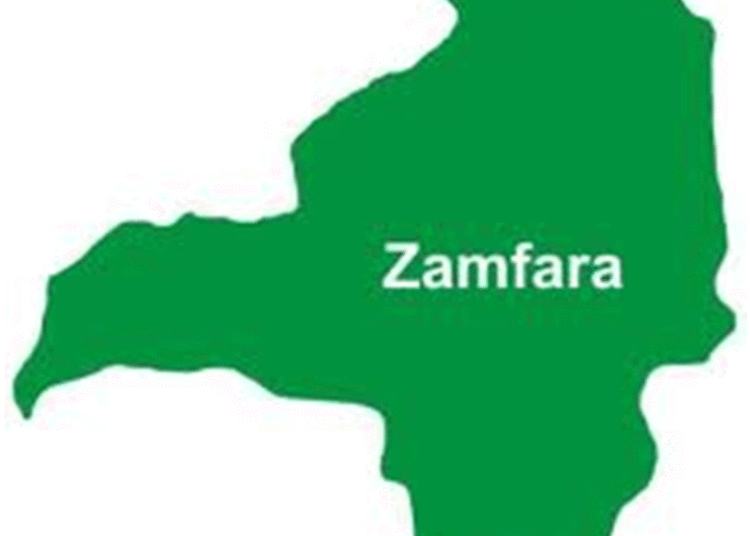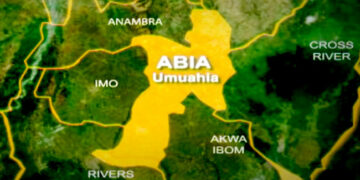The United Kingdom (UK) government has condemned the killing of 33 kidnapped victims in Zamfara State despite receiving ransom.
The victims were killed on Sunday by bandits in Banga town in Kaura Namoda local government area of Zamfara State, after collecting N50 million ransom from the families.
The kidnappers, led by a notorious bandit leader, Dan Sadiya, had abducted over 50 residents from the community, but released 17 hostages, mostly women, after collecting the ransom .
At a press briefing yesterday on the State Expansion Programme for the Anti-Kidnap Fusion Cell, organised by the National Counter Terrorism Centre (NCTC) in collaboration with the UK government, the
UK deputy high commissioner to Nigeria, Gill Levers, described kidnapping as an “unspeakable crime” that has impacts on society, communities, and families.
“It damages people’s mental and physical well-being, retards economic progress and all the other things that we know well. And we must bring an end to this,” Levers said.
She continued, “We must stop this. We must limit this, because we all feel passionately and keenly what the terrible impacts are of kidnapping. This is what we want to try to stop.
“So, my condolences to the people of that state and the affected people and to their families and friends.”
She said the multi-agency Kidnap Fusion Cell is a three-year initiative to create a collaborative response from Nigeria’s security forces to tackle the threat of kidnapping across the country.
According to Levers, the Multi-Agency Fusion Cell’s role was to support the Nigerian Police and Department of State Service (DSS) kidnap response units nationwide by collecting, analysing, and disseminating data to the Office of the National Security Adviser and providing trend-based information on kidnapping incidents by state.
She said, “The Multi-Agency Fusion Cell and the training that’s going on this week come out of a deep partnership between the United Kingdom and Nigeria called our Security and Defence Partnership.
“It’s part of our overall strategic partnership, signed by our foreign ministers last year, and a partnership based on mutual trust, respect, and support. In the work that the UK Crime Agency has been doing with NCTC and the Nigerian Police and other stakeholders, very much grounded in those key principles and wanting to formulate a model that is for Nigeria, not the UK imposing its idea of what a kidnap fusion centre should look like, but something that you as the experts, you as the people that experience the reality of kidnaps, want and need and that speaks to your needs.
“We met at a Security and Defence Partnership meeting over a few days in London a couple of weeks ago, and this step of rolling out the Multi-Agency Fusion Cell capability to states was something we agreed on.
“So, this week sees the next phase of collaboration. So, Nigerian Police and DSS kidnap commanders from every state here in Abuja, attending what we call the state expansion programme. And this will synergise the Multi-Agency Fusion and the state response teams to produce a joint effect greater than their individual entities.”
According to her, the plan was to provide and upskill the commanders in the case management system, giving them direct access to the MAC FC, real-time support to the states, and ensuring that the MAC FC gets timely updates on investigations. The commanders are also receiving training in kidnap management in line with the United Nations Kidnap Manual.
The national coordinator of the National Counter Terrorism Centre, Major General Adamu Laka, said the fusion cell, since its establishment, has worked closely with the military and law enforcement agencies across the country to support kidnap response operations.
He said the centre serves as a central hub for coordinating efforts, sharing intelligence, and enhancing Nigeria’s overall capacity to respond swiftly and effectively to kidnapping incidents with the ultimate aim of saving lives.
“We remain mindful of the ongoing threats, particularly in states such as Katsina, Zamfara, and Kaduna, which recorded the highest number of incidents during the period under review,” he said.
General Laka stated further that the National Counterterrorism Centre, under the strategic direction of the National Security Adviser, has launched a state expansion initiative in response to this menace. This initiative involves the engagement of anti-kidnapping liaison officers from the Nigerian police and the Department of State Services from all 36 states of the federation and the Federal Capital Territory.
“The primary purpose of the programme is to close the gap between the national level coordination and state level response.
“Essentially, this will assist in building direct operational linkages between the cell and state commands across the country. This is based on the realisation that while national coordination is crucial, state level engagement is indispensable. “Too often, real-time intelligence, local knowledge, and operational readiness reside with field commands, while national coordination can only succeed when informed by ground realities.”
General Laka reiterated that the National Counterterrorism Centre is dedicated to advancing intelligence-led coordination through the fusion cell, promoting national response capabilities across all relevant agencies, and maintaining joint training and enduring partnerships.
“We remain steadfast in our commitment to prioritising the protection, rescue, and welfare of kidnapped victims.”





